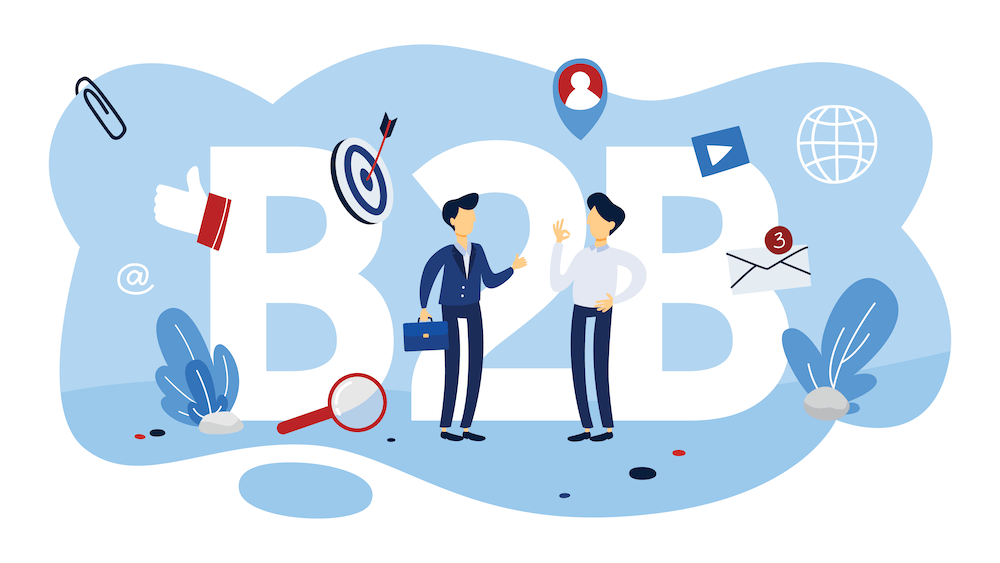In today’s competitive landscape, businesses increasingly realize the importance of prioritizing customer experience (CX) to drive growth and foster long-term relationships. While much attention has been given to business-to-consumer (B2C) interactions, the significance of b2b customer experience cannot be overstated. In this article, we delve into the intricacies of the b2b customer experience, its components, challenges, b2b customer experience strategy for enhancement, and real-world examples of successful implementation.
Introduction to B2B Customer Experience

B2B cx refers to the sum of interactions and perceptions that a business’s clients have throughout their journey with the company. It encompasses every touchpoint, from initial engagement to post-purchase support, and encompasses the satisfaction, loyalty, and advocacy levels among B2B clients.
Understanding B2B Customer Experience
Unlike B2C transactions, B2B interactions often involve more complex decision-making processes and longer-term relationships. B2B cx focuses on meeting the unique needs and expectations of businesses, which may vary significantly from those of individual consumers.
Importance of B2B CX
Effective B2B CX is crucial for several reasons. Firstly, it fosters loyalty and repeat business, reducing customer churn and increasing lifetime value. Secondly, positive experiences enhance brand reputation and differentiation in competitive markets. Finally, satisfied B2B customers are more likely to act as advocates, generating referrals and driving new business opportunities.
Components of Effective B2B CX
1. Clear Communication Channels
Establishing clear and accessible communication channels is essential for B2B relationships. Whether through dedicated account managers, online portals, or responsive customer support teams, businesses must ensure seamless communication to address inquiries, resolve issues, and provide timely updates.
2. Personalized Interactions
Personalization plays a crucial role in the b2b cx management. Understanding each client’s unique preferences, challenges, and goals enables businesses to tailor their offerings, recommendations, and interactions, thereby fostering deeper connections and long-lasting partnerships.
3. Streamlined Processes
Simplicity and efficiency are key principles in B2B transactions. Businesses must strive to streamline processes, minimize friction, and eliminate unnecessary steps to enhance the overall customer experience for B2B. From order fulfillment to invoicing, every aspect of the interaction should be optimized for convenience and effectiveness.
Challenges
While the benefits of prioritizing b2b cx management are clear, organizations face several challenges in implementation.
1. Complex Decision-Making Processes
B2B purchases often involve multiple stakeholders with diverse priorities and agendas, leading to complex decision-making processes. Aligning internal teams, addressing competing interests, and navigating procurement requirements can pose significant challenges to delivering a seamless customer experience B2B.
2. Multiple Stakeholders
Unlike B2C transactions, where the consumer is the primary decision-maker, B2B interactions often involve various stakeholders across different departments and levels of authority. Balancing the needs and expectations of these stakeholders requires careful coordination and communication throughout the b2b customer experience journey.
3. Integration of Technologies
In an increasingly digital landscape, integrating and leveraging technology tools is essential for optimizing the B2B CX. However, implementing and maintaining robust systems for CRM, analytics, and automation poses technical and operational challenges for many organizations.
Strategies for Improving B2B CX
To address these challenges and enhance b2b cx management, businesses can adopt several strategies:
1. Data-Driven Insights
Harnessing data analytics and customer insights allows businesses to understand client behavior, preferences, and pain points better. By leveraging data-driven insights, organizations can tailor their offerings, anticipate customer needs, and proactively address issues before they escalate.
2. Customer Feedback Loops
Establishing robust feedback mechanisms enables businesses to solicit input from clients at various touchpoints along the customer experience B2B journey. By actively listening to customer feedback, organizations can identify areas for improvement, prioritize initiatives, and demonstrate a commitment to continuous enhancement.
3. Continuous Improvement Initiatives
B2B cx strategy is not a one-time endeavor but an ongoing commitment to excellence. By fostering a culture of continuous improvement, organizations can adapt to evolving client needs, market dynamics, and technological advancements, ensuring sustained relevance and competitiveness.
Case Studies
1. Salesforce
Salesforce, the global leader in customer relationship management (CRM) software, has consistently set benchmarks in the b2b customer experience space. By leveraging artificial intelligence (AI) and predictive analytics, Salesforce has personalized its interactions with clients, anticipating their needs even before they arise. This proactive approach has helped Salesforce maintain long-term relationships with large-scale businesses such as Coca-Cola and Toyota, driving b2b cx loyalty and engagement.
Record-breaking Impact: Salesforce reported a 30% increase in customer satisfaction and a 25% boost in renewal rates after integrating its AI-powered features into its CRM platform, showcasing the power of personalized and data-driven experiences.
Quote from Salesforce Executive: “At Salesforce, we believe that by harnessing the power of data and artificial intelligence, we can elevate the B2B customer experience to new heights. The goal is to not just meet, but exceed our customers’ expectations at every touchpoint.” — Sarah Franklin, President & Chief Marketing Officer, Salesforce
2. Siemens
Siemens, a multinational engineering and technology company, has long been a pioneer in integrating innovative technology to enhance its b2b customer experience. By providing seamless integration between its products and the software solutions it offers, Siemens has been able to streamline the purchasing process for its clients, reducing friction and improving operational efficiency.
Record-breaking Impact: Siemens’ initiative, “Digital Enterprise,” has helped businesses in industries such as manufacturing and healthcare reduce downtime by up to 40% through more efficient system integrations, leading to increased client satisfaction and retention.
Quote from Siemens Executive: “We understand that in B2B, time is money. By integrating cutting-edge technology into our solutions, we enable our clients to work smarter, faster, and more efficiently, ultimately transforming their businesses.” — Klaus Helmrich, Member of the Board of Management, Siemens AG
3. HubSpot
HubSpot, an inbound marketing, sales, and customer service software company, has become a standout example of delivering a remarkable b2b customer experience through transparency and a commitment to customer success. The company has developed an industry-leading customer success team that works alongside clients to ensure that they achieve their goals, not just use the software.
Record-breaking Impact: HubSpot has achieved a customer retention rate of over 90%, and its NPS (Net Promoter Score) consistently ranks among the highest in the B2B SaaS industry, thanks to its emphasis on customer success and transparent communication.
Quote from HubSpot Executive: “We’ve built a culture of customer success because we know that our clients’ success is our success. Every relationship is a partnership, and we’re committed to helping them grow.” — Brian Halligan, CEO & Co-Founder, HubSpot
Conclusion
In conclusion, enhancing the b2b cx is essential for driving business success and maintaining competitive advantage in today’s dynamic marketplace. By understanding the unique needs of B2B clients, addressing challenges proactively, and implementing effective b2b customer experience strategy, organizations can cultivate lasting relationships, drive growth, and achieve sustainable success.
To experience firsthand how AIM Technologies can revolutionize your B2B customer experience and propel your business forward, we invite you to request a demo today. Discover the power of our solutions in action and unlock new opportunities for innovation and growth.
FAQs
What makes the B2B customer experience different from B2C?
- B2B customer experience differs from B2C primarily due to the nature of the relationships and transactions involved. In B2B interactions, purchases often involve multiple stakeholders, longer decision-making processes, and more complex requirements compared to B2C transactions, which typically involve individual consumers.
How can businesses measure the effectiveness of their B2B customer experience initiatives?
- Businesses can measure the effectiveness of their b2b cx management initiatives through various metrics, including customer satisfaction scores, Net Promoter Score (NPS), customer retention rates, and feedback from client surveys and reviews. Additionally, tracking key performance indicators (KPIs) such as repeat purchases, average order value, and customer lifetime value provides insights into the impact of cx efforts on business outcomes.
What role does technology play in enhancing B2B customer experience?
- Technology plays a pivotal role in enhancing the b2b cx by enabling automation, personalization, and streamlined interactions. CRM systems, analytics platforms, AI-powered chatbots, and customer portals facilitate seamless communication, data-driven insights, and tailored solutions, enhancing efficiency and satisfaction throughout the customer journey.
How can businesses overcome common challenges in implementing B2B customer experience strategies?
- Businesses can overcome common challenges in implementing b2b cx strategies by prioritizing collaboration across departments, investing in employee training and development, leveraging customer feedback to drive continuous improvement, and staying agile in response to evolving market dynamics and client needs. Additionally, partnering with experienced vendors and adopting scalable technology solutions can streamline implementation and mitigate risks.
What are some emerging trends in B2B customer experience management?
- Emerging trends in b2b customer experience trends include hyper-personalization, predictive analytics, omnichannel engagement, self-service portals, and augmented reality (AR) solutions. These trends reflect a growing emphasis on delivering seamless, intuitive experiences that anticipate and exceed the evolving expectations of B2B clients while leveraging technology to drive innovation and competitive differentiation.




